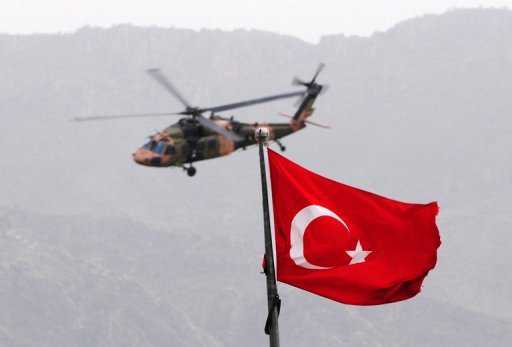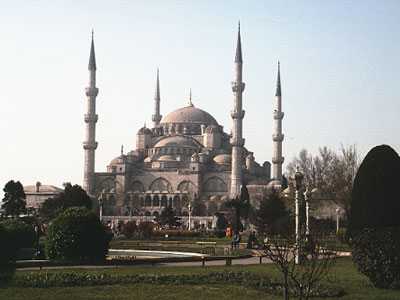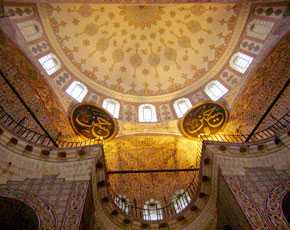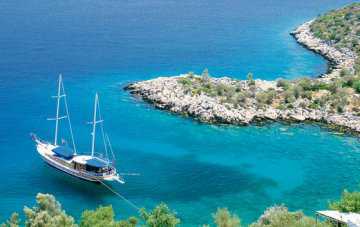Justin Vaisse, Senior Fellow, Foreign Policy, Center on the United States and Europe
The Brookings Institution
September 2008 —
Introduction
This paper aims to briefly present the basic facts and issues concerning Muslims in Europe, from a political and sociological perspective, and to offer elements of comparison with the US.1 There will be a slight emphasis on France, due to author’s area of specialty – and to the fact that France is home to the largest Muslim population in Europe.
A few popular myths about Islam in Europe should first be dispelled, in order to grasp the real issues and challenges:
Myth #1: Being Muslim constitutes a fixed identity, sufficient to fully characterize a person.
When it comes to Muslims, people wrongly assume that religion – rather than nationality, gender, social class, etc. – necessarily trumps other identities. To take just a few examples, the Washington Post, in an article on migration to the EU (June 2008), writes about “Muslims arriving from the Middle East and Africa, and Eastern Europeans moving west”, even though a) not all of the migrants from this region are Muslims, b) “Eastern Europeans” would never be labeled “Orthodox” or “Catholics”, and c) that is not the issue anyway, since the article is about immigration. For a couple of weeks in November 2005, the media used the term “Muslims riots in France” to describe the wave of urban violence that resulted in burnt cars and property damage. But these riots had nothing to do with Islam, and everything to do with the social and economic conditions of largely immigrant communities. Muslim groups, who tried to play a mediating role, discovered themselves to be irrelevant and powerless.
Myth #2: Muslims in Europe are, in one way or the other, inherently foreign, the equivalent of visiting Middle-Easterners who are alien to the “native” culture.
European culture, however, has always included Muslim elements, as early as the 8th century. Moreover, the approximately 15 to 17 million persons of Muslim background currently in the EU-27 countries (population: 500 million) include both citizens and non-citizens of European member states, but a majority of them hold French, British, German, etc. nationality. Many of them are proud of this fact and would never think of themselves as anything else than Europeans (even while honoring their heritage). Indeed, there is more difference in political culture and social codes between a French Muslim and a German Muslim than there is between a French Muslim and a French of other religious orientation.
Myth #3: Muslims in Europe form a “distinct, cohesive and bitter group,” in the words of a 2005 Foreign Affairs article.
In reality, they are anything but a cohesive group. Not only is there no unity to be found at the European level, but when one looks at the national level, what predominates is the profound divisions, either between countries of reference and their specific culture and brand of Islam (e.g., Belgians of Turkish origin vs. Belgians of Moroccan origin), between visions of religion and affiliation (e.g., German Turks associated with Milli Görüş vs. those affiliated with Diyanet), or between social status, political views, ethnicity, etc. In other words, to speak of “a Muslim community” is simply misleading.
Myth #4: Muslims are demographically gaining on the “native” population.
The implicit assumption behind this very widespread myth is that Muslims form a distinct demographic bloc defined by religion, a bloc which will never blend into the rest of society (another possible assumption is based on ethnicity, “Muslims” being surrogate for “people of color” vs. white people). This assumption is contradicted by the significant rates of intermarriage and conversions (in both directions) and, more importantly, by the reality of integration in many countries, where Muslims are simply patriotic, law-abiding citizens – in this case, worries about demography have no basis, why would one count them apart? But even accepting the assumption they are a demographic bloc, “Muslims” are not actually significantly gaining on “natives.” True, European birthrates are generally low, and birthrates among immigrant groups are often high. But in the latter group, they actually fall rapidly after their arrival and among subsequent generations, as they tend to conform to the national norm. And in some countries like France or Ireland, general fertility rates are comparable to that observed in the US, around 2 children per woman. Last but not least, immigration to the EU is more and more tightly controlled. It is doubtful that from about 15-17 million in the 500 million EU-27 today (3 to 4 %), potential Muslims could number more than 6 % in the coming decades.






